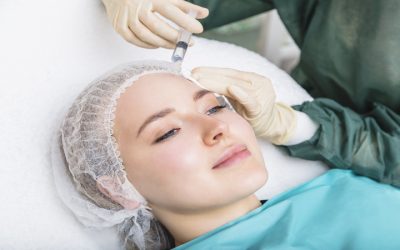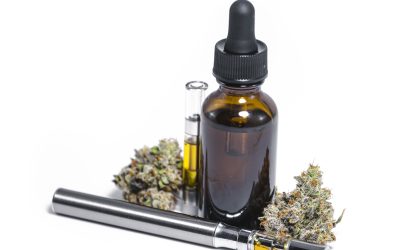Testosterone, often referred to as the “male hormone,” plays a crucial role in many aspects of a man’s health. It influences energy levels, muscle mass, bone density, libido, and even mood. However, as men age, their testosterone levels naturally decline, and for some, this decline can result in low testosterone, or Low T. Low T is not just a normal part of aging; it’s a medical condition that can significantly impact quality of life.
Let’s explore what Low T is, how it affects men, and the ways testosterone replacement therapy (TRT) can help restore balance and improve overall health.
What is Low Testosterone?
Low testosterone, or hypogonadism, is a condition in which the body doesn’t produce enough testosterone to maintain typical functions. While testosterone naturally decreases as men age, it’s important to note that a significant decline in testosterone can lead to noticeable and often uncomfortable symptoms.
Symptoms of Low Testosterone
Some of the most common signs of Low T include:
- Fatigue and decreased energy levels
- Reduced libido or sexual desire
- Loss of muscle mass and strength
- Increased body fat
- Mood swings, irritability, or depression
- Difficulty concentrating or memory problems
For many men, these symptoms can be subtle at first, but they may intensify over time. It’s important to note that other health conditions, such as obesity, diabetes, or sleep apnea, can contribute to Low T. Therefore, it’s crucial for men experiencing these symptoms to consult a healthcare provider for proper diagnosis and treatment.
The Impact of Low Testosterone on Men’s Health
Testosterone influences several important bodily functions, including metabolism, heart health, and mood regulation. When testosterone levels dip too low, the consequences can extend beyond the physical, affecting emotional well-being and cognitive function.
- Physical Health: Low testosterone can contribute to reduced bone density, increasing the risk of fractures. It can also lead to a decrease in muscle mass and strength, which can affect mobility and overall fitness.
- Emotional Well-being: Testosterone has a direct impact on mood. Low levels of testosterone have been associated with feelings of irritability, depression, and a general lack of motivation.
- Sexual Health: A primary function of testosterone is to regulate libido and erectile function. As testosterone levels drop, many men experience a diminished interest in sex, and some may also experience difficulties with erectile function.
Hormonal Therapy for Men: A Solution to Low T
One of the most effective treatments for Low T is testosterone replacement therapy (TRT). TRT aims to restore normal testosterone levels, thereby alleviating many of the symptoms associated with Low T.
TRT can be administered in several ways, including:
- Testosterone Injections: These are the most common form of TRT and are typically administered by a healthcare provider every few weeks. Injections help to restore testosterone levels in the bloodstream.
- Topical Gels: Testosterone gels are applied to the skin and absorbed directly into the bloodstream. They are convenient and allow for more consistent testosterone levels.
- Patches: Similar to topical gels, patches are applied to the skin and deliver testosterone over a 24-hour period.
- Pellets: Small testosterone pellets are implanted under the skin and release testosterone over the course of several months.
Each method has its own benefits and considerations, so it’s important to discuss options with a healthcare provider to determine the best treatment plan based on individual needs and preferences.
How Testosterone Replacement Therapy Works
TRT works by increasing the amount of testosterone in the bloodstream, which can help alleviate the symptoms of Low T. However, it’s important to note that TRT does not cure the underlying cause of testosterone deficiency. It simply helps manage symptoms by restoring testosterone to a normal range.
After starting TRT, many men report feeling significant improvements in their energy levels, libido, and overall mood. Additionally, some men experience an increase in muscle mass and strength, while others see a reduction in body fat. TRT can also improve cognitive function, making it easier for men to focus and concentrate.
Potential Risks and Considerations
While TRT can offer many benefits, it’s important to consider potential risks and side effects. TRT may not be suitable for all men, particularly those with certain health conditions. For example, men with prostate cancer, breast cancer, or untreated sleep apnea should avoid TRT.
Some potential risks associated with TRT include:
- Increased red blood cell count, which can increase the risk of blood clots
- Prostate enlargement, which can worsen symptoms of benign prostatic hyperplasia (BPH)
- Mood swings or aggression, though these are typically rare
- Sleep apnea: TRT may exacerbate pre-existing sleep apnea
It’s essential for men undergoing TRT to have regular follow-up appointments with their healthcare provider to monitor their health and testosterone levels.
Finding the Right Care for Low Testosterone
If you suspect you have Low T or have already been diagnosed, it’s important to find a reliable healthcare provider to guide you through the treatment process. Hormonal therapy for men should always be managed by a healthcare professional who understands the complexities of testosterone therapy and can monitor your progress over time.
At Optimal Female and Men’s Wellness, they serve as a reliable partner for men seeking to address Low T and improve their overall well-being. Their team of professionals provides personalized care and treatment plans to help men restore their hormone levels and regain vitality.
Final Thoughts
Low testosterone is a common condition that affects many men as they age, but it doesn’t have to control their lives. Through hormonal therapy for men, specifically testosterone replacement therapy, men can address the symptoms of Low T and improve their overall health.
If you’re experiencing symptoms of Low T or are curious about testosterone replacement therapy, consider consulting with a healthcare provider to discuss your options and determine the best course of action for your health.
Remember, it’s never too late to take charge of your health and start feeling like yourself again.
For more information on how hormonal therapy for men can improve your health, visit Optimal Female and Men’s Wellness to learn more about their approach to testosterone replacement therapy.








